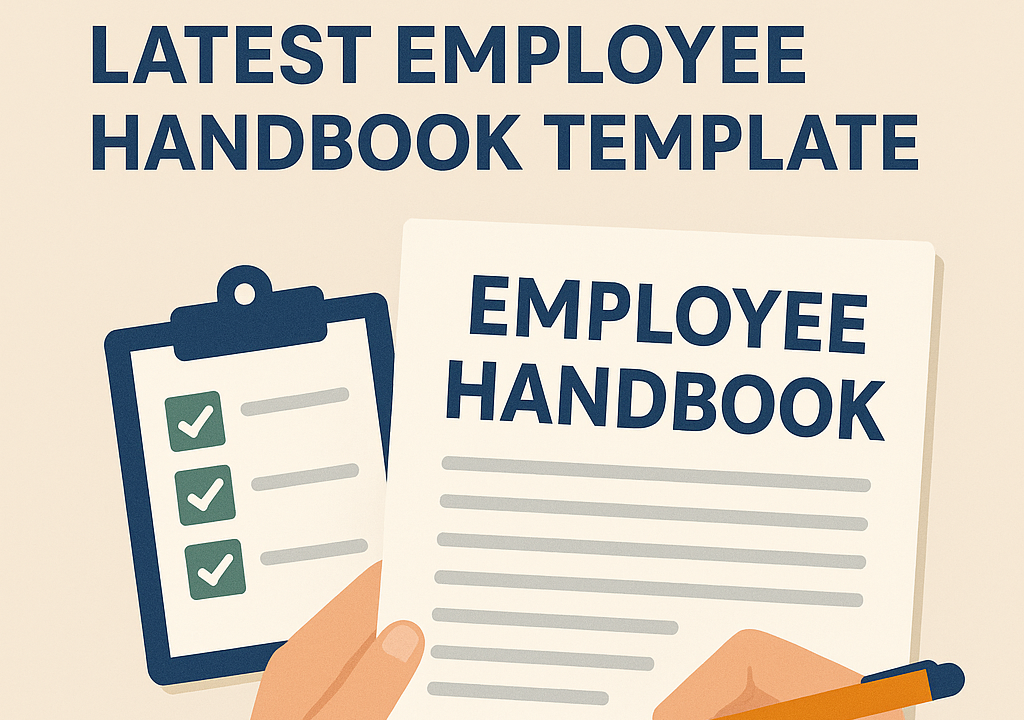In the operation of a business, establishing clear and effective company regulations is a key factor in maintaining order, improving work efficiency, and minimizing legal risks. More than just a human resource management document, labor regulations serve as an important legal foundation for disciplinary actions and resolving internal disputes. For newly established companies in particular, developing well-structured labor regulations from the outset helps build a solid foundation for a sustainable workplace culture.
In this article, we will provide detailed guidance on how to develop and implement company regulations for new businesses, in accordance with the latest legal requirements.
What Is a Company’s Internal Regulation?
Definition of Company Rules Under the Law
According to Article 118 of the 2019 Labor Code, internal labor regulations are a set of rules issued by the employer to govern disciplinary violations and the work obligations of employees. A company is not required to register its internal regulations if it employs fewer than ten workers; however, it is still encouraged to do so for effective labor management. The regulations must be written and communicated to all employees to ensure transparency and compliance with the law. They also serve as an important legal basis for resolving labor disputes when they arise.
Are Company Regulations Mandatory?
The law does not require every business to have internal regulations. However, companies with ten or more employees must issue and register their labor regulations. Whether or not a company has such rules directly affects its ability to handle violations and discipline employees. For small businesses, it is still advisable to develop a sample set of internal regulations for new companies to clarify internal principles, codes of conduct, and work standards. Doing so not only helps minimize risks but also enhances operational efficiency.
How Do Company Regulations Differ from Employment Contracts?
A common misconception is that company regulations are the same as employment contracts. In reality, these are two completely different legal documents.
An employment contract is a bilateral agreement between the employer and the employee, defining the specific rights and obligations of each party.
In contrast, company regulations are a unilateral document issued by the employer and applied to all employees within the organization. These regulations serve as a general management framework that supports employment contracts in maintaining order and providing a legal basis for handling violations.
Employee Responsibilities Regarding Company Regulations
Every employee who signs a labor contract is responsible for complying with the company’s internal regulations. Compliance is mandatory, and violations may result in disciplinary actions as clearly stated in the regulations—such as reprimands, wage increase delays, or dismissal. Moreover, company rules help employees understand their rights, obligations, and appropriate workplace behavior aligned with company culture. Therefore, when developing internal regulations, employers should gather employee feedback to ensure the rules are practical and widely accepted.
How to Develop Company Regulations
Developing company regulations involves establishing internal rules that govern employee behavior, duties, and rights within the organization. A comprehensive set of regulations not only maintains workplace order but also serves as a foundation for sustainable human resource management. For newly established companies, having a standard template for internal regulations helps save time and ensures compliance with labor law requirements regarding workplace rules.

Structure of a Standard Company Regulation
A standard company regulation typically consists of seven main sections:
- Purpose and Scope of Application
- Working Hours and Rest Periods
- Dress Code and Occupational Safety
- Use of Company Property
- Prohibited Acts
- Employee Responsibilities and Disciplinary Measures
- Effectiveness and Amendments
Each section should be presented clearly, logically, and understandably so that employees can easily remember and comply with the rules. Businesses may adjust the structure to fit their specific industry, as long as all legal elements required by the Labor Code are included.
Key Principles for Developing Internal Labor Regulations
To develop effective internal labor regulations, a company should follow three main principles: legality, transparency, and feasibility.
- Legality means that the content must not contradict current laws and regulations.
- Transparency ensures that employees can understand and follow the rules easily.
- Feasibility means the provisions must be practical and suitable for the company’s actual operations.
Additionally, when drafting the regulations, it is important to consult employees or their representative organizations (if any) to avoid complaints and ensure the rules can be effectively applied in practice.
Common Mistakes When Developing Company Regulations
Many businesses, especially newly established ones, often make the following mistakes when drafting internal regulations:
- Copying templates that are not suitable for their industry or operations.
- Using overly complex or legalistic language that is difficult for employees to understand.
- Including illegal provisions, such as imposing monetary fines on employees (which is prohibited under the Labor Code).
- Lacking a clear structure or a transparent process for handling violations.
- Failing to communicate the regulations effectively to employees.
To avoid these errors, companies should seek advice from legal professionals or use specialized consultancy services for drafting internal labor regulations, ensuring the final document is both compliant and practical.
What Does a Sample Company Regulation for Newly Established Businesses Include?
For newly established companies, having a clear, easy-to-understand, and legally compliant set of internal regulations is essential. Company regulations not only help employees understand their rights and obligations, but also serve as a basis for handling violations, maintaining discipline, and improving work efficiency. A sample internal regulation should be scientifically structured and tailored to the company’s industry and scale.
Basic Company Regulation Template
A basic company regulation template generally includes fundamental provisions applicable to most types of businesses. The main sections usually cover:
- Working hours and rest periods
- Dress code
- Code of conduct
- Use of company assets and equipment
- Occupational safety and fire prevention
- Reward and disciplinary policies
- Violation handling procedures
This model is suitable for companies with fewer than 10 employees or those not required to register their internal regulations with the authorities. Businesses can use this as a framework and customize it further to suit their operations.
Company Regulation Template for Manufacturing and Construction Firms
For manufacturing and construction enterprises — where operations involve higher risks and hazards — the internal regulations must place special emphasis on occupational safety, use of machinery and protective equipment, and worksite procedures.
In addition to general provisions, this type of regulation should include details such as:
- Shift work and rest schedules
- Regular safety inspections
- Team coordination rules
- Prohibited acts, such as smoking in flammable areas, failure to wear protective gear, or operating machinery without authorization.
These additions ensure compliance with safety standards and help prevent workplace accidents.
Company Regulation Template for Trade and Service Businesses
For businesses in the trade and service sectors — such as supermarkets, distribution companies, travel agencies, spas, or restaurants — the company regulation should emphasize:
- Working hours and punctuality
- Customer service conduct
- Information confidentiality
- Professional behavior and communication
Typical contents include:
- Proper service attitude toward customers
- No use of personal phones during work hours
- No meeting external clients without approval
- Procedures for handling customer complaints
This type of regulation should be flexible and updated regularly to reflect service characteristics and customer feedback.
Notes on Using Pre-Made Regulation Templates
Using pre-made company regulation templates can be convenient, but it also carries risks if applied mechanically or copied from unofficial sources. Some templates may:
- Be outdated and not reflect the latest legal provisions
- Contain illegal clauses, such as monetary fines for employees (which are prohibited under the Labor Code)
- Be unsuitable for the company’s size, culture, or industry
Therefore, businesses should treat sample templates as references only, and adjust them to fit their specific needs. Ideally, companies should consult with lawyers or HR legal experts to ensure that their internal labor regulations are legally valid and practical to implement.
Do Company Regulations Need to Be Registered?
Which Businesses Must Register Their Company Regulations?
According to Article 119 of the 2019 Labor Code, companies with 10 or more employees are required to prepare written internal labor regulations and register them with the local labor authority — either the District Labor, War Invalids and Social Affairs Office (Phòng Lao động – Thương binh và Xã hội) or the Provincial Department of Labor, War Invalids and Social Affairs (DOLISA) (Sở LĐTBXH), depending on where the company is registered.
Companies with fewer than 10 employees are not required to register their internal regulations. However, if such regulations are issued in writing, they should still be clearly communicated and disseminated to all employees.
Failure to register when required may result in the regulations losing legal validity, making it difficult to resolve labor disputes.
Required Documents for Registration
To register company regulations, a business must prepare a dossier that includes:
- Application for registration of internal labor regulations, following the form issued under Circular No. 10/2020/TT-BLĐTBXH.
- The internal labor regulation document, duly signed and stamped by the company’s legal representative.
- Minutes or written comments from the employee representative organization (if there is a trade union or collective labor representative).
The dossier should be compiled into one complete set and submitted either in person or online through the provincial e-Government service portal where the company’s head office is located.
Where to Submit Company Regulation Registrations
Depending on the company’s scale and type, the receiving authority differs:
- District-level Labor, War Invalids and Social Affairs Office: For small and medium-sized enterprises.
- Provincial Department of Labor, War Invalids and Social Affairs (DOLISA): For large enterprises or companies with foreign investment.
Businesses must ensure that their dossier is submitted to the correct authority to avoid rejection or delays.
In many provinces and cities, the registration process can now be completed online, saving both time and administrative costs.
Processing Time and Procedure
Once a complete and valid dossier is received, the labor authority must process and respond within seven (07) working days.
If the dossier is incomplete, the company will be notified to make corrections or additions.
If no feedback is received after the statutory time limit, the company’s internal regulations are automatically deemed effective, and the company may begin applying them.
Companies should keep all submission receipts and evidence of registration for legal reference.
After approval, the regulations must be publicly communicated to all employees through methods such as:
- Posting at the workplace or notice boards
- Sending via internal email
- Publishing on the company intranet or HR system
Cases of Rejection and How to Remedy Them
In some cases, the labor authority may reject registration if the company regulations:
- Contain illegal provisions,
- Lack clarity or transparency, or
- Are missing required documents.
For example, rules that impose monetary fines on employees or discriminate in disciplinary actions are prohibited under the Labor Code.
When rejected, the company should review and revise the regulations in line with the authority’s feedback before resubmitting.
It is strongly recommended that businesses consult legal experts or professional HR consultants when drafting or revising their internal labor regulations to ensure the document is legally valid and practically enforceable.
What Are the Benefits of Issuing Company Regulations?
Issuing company regulations is not only a legal requirement for certain businesses but also brings significant practical benefits to corporate management and operations. A well-structured and transparent set of internal labor rules helps foster a positive corporate culture, a professional working environment, and reduces potential legal risks. Below are five key benefits that a company can gain from having a proper set of internal regulations.

1. Establishing a Disciplined Working Environment
One of the most visible benefits of issuing company regulations is the creation of an organized and disciplined workplace. The rules clearly define principles on working hours, behavior, internal communication, and interdepartmental interaction, helping every employee understand the company’s expectations and their own boundaries.
For newly established companies, implementing a standard regulation template helps shape proper norms from the outset, avoiding disorder and inconsistency during early operations.
2. Reducing Internal Labor Disputes
A clear and comprehensive internal labor regulation serves as a legal foundation for resolving disputes between employers and employees. When the rules specify rights, obligations, and penalties for violations, both parties have a reference point for fair and lawful dispute resolution.
This is especially important in organizations with multiple departments and employees, as it helps minimize personal conflicts, complaints, and unnecessary lawsuits. Moreover, transparent regulations give employees a sense of security knowing that all rules are applied fairly.
3. Providing a Legal Basis for Disciplinary Actions
When an employee violates company policy or obligations, the internal regulations serve as the legal foundation for disciplinary measures. Under labor law, any disciplinary action must be based on behaviors that have been clearly stated in the registered company regulations; otherwise, such action may have no legal validity.
Therefore, without a proper or registered regulation (for companies with 10 or more employees), the employer may face difficulties in enforcing discipline. A well-prepared regulation thus protects both the employee and the employer by ensuring lawful and fair handling of violations.
4. Improving Work Efficiency
When everyone in the organization understands their roles, responsibilities, and behavioral standards, teamwork becomes smoother, conflicts are reduced, and productivity increases.
Internal regulations also help new employees quickly adapt to the company culture, reducing retraining time. Clear, standardized rules prevent inconsistent practices among employees and departments, promoting alignment and operational efficiency across the company.
5. Strengthening Corporate Culture
Beyond being a management tool, company regulations are an essential part of corporate culture. When properly designed to reflect the company’s core values, they help employees understand the spirit, vision, and work ethic the organization expects. Well-implemented regulations act as a bridge between management and staff, fostering trust, transparency, and unity. Fair and transparent enforcement also reflects the company’s professionalism and enhances its image among employees and business partners alike.
Issuing company regulations is therefore not just a legal requirement for businesses with 10 or more employees — it is a strategic step in long-term human resource management. A well-prepared set of labor rules enables a company to maintain discipline, handle disputes lawfully, and build a cohesive workforce. For newly established businesses, the sample company regulations presented above can be adapted to fit specific operations. If you are unsure about the process or need professional assistance, consider consulting legal advisors or HR service providers to ensure your internal regulations fully comply with the law.
For any inquiries, contact Wacontre Accounting Services via Hotline: (028) 3820 1213 or email info@wacontre.com for prompt assistance. With a team of experienced professionals, Wacontre is committed to providing dedicated and efficient service. (For Japanese clients, please contact Hotline: (050) 5534 5505).








